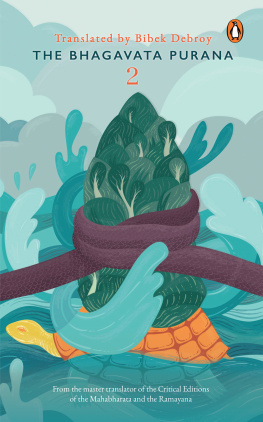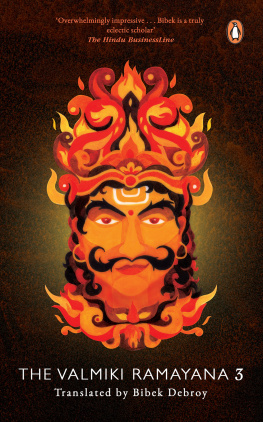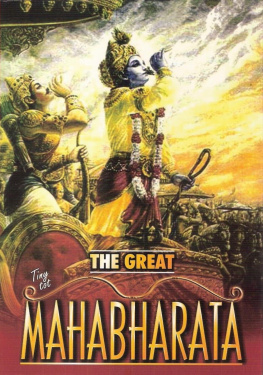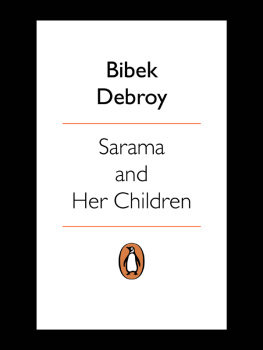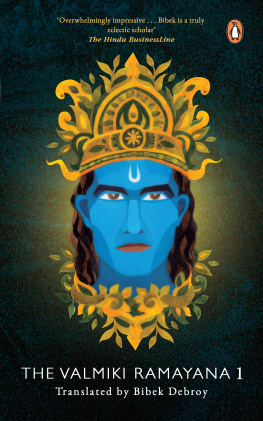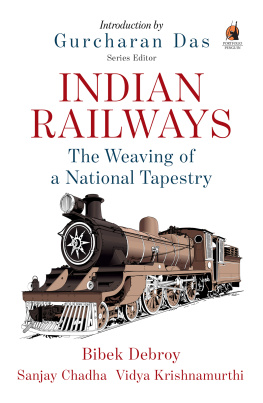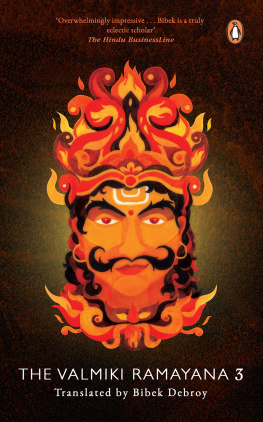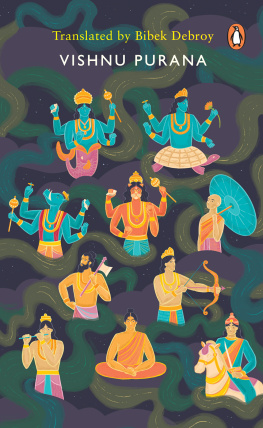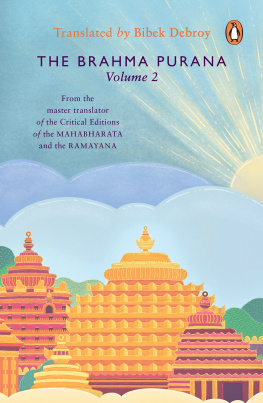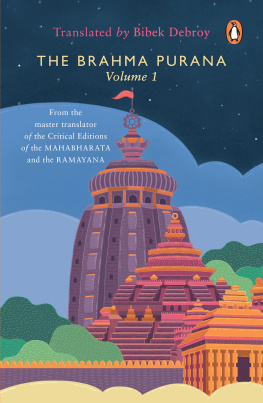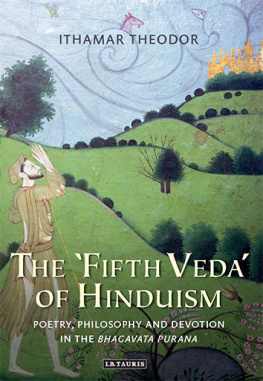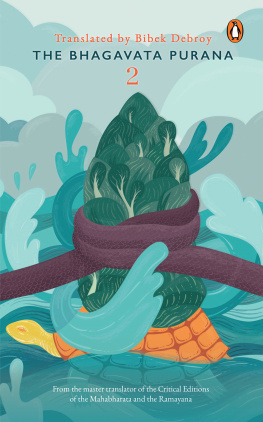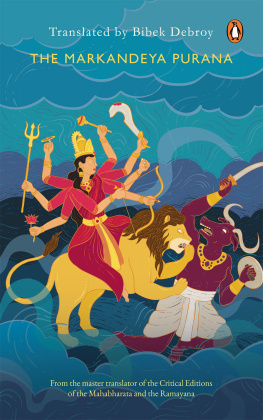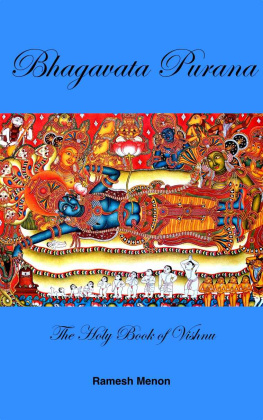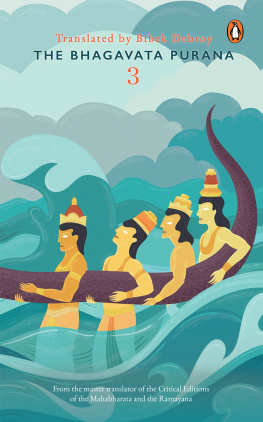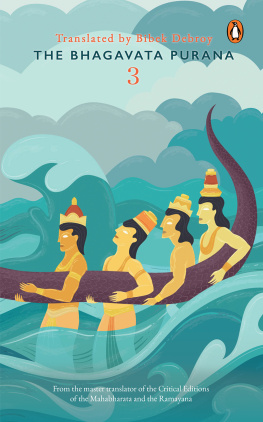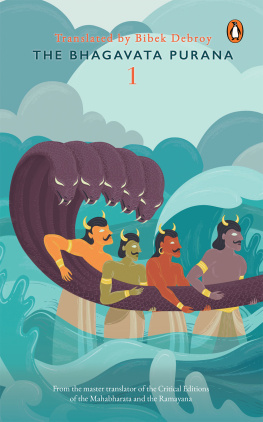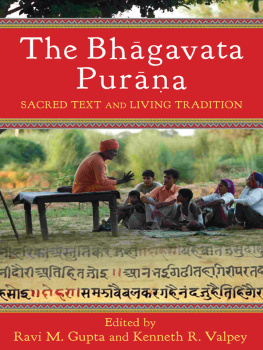It is a delight to read Bibek Debroys translation of the Valmiki Ramayana. Its like Lord Ram has blessed Dr Debroy, and through him, blessed us with another vehicle to read His immortal storyAmish Tripathi
Bibek Debroys translation of the Ramayana is easy to navigate... It is an effort for which Debroy deserves unqualified praiseBusiness Standard
A nuanced translation of a beloved epic... There is much to recommend this three volume set that can renew our interest in the Ramayana, surely one of the greatest stories ever toldIndian Express
Introduction
T he word purana means old, ancient. The Puranas are old texts, usually referred to in conjunction with Itihasa (the Ramayana and the Mahabharata). In other words, ItihasaPurana possessed an elevated status. This by no means implies that the word purana, as used in these two Upanishads and other texts too, is to be understood in the sense of the word being applied to a set of texts known as the Puranas today. The Valmiki Ramayana is believed to have been composed by Valmiki and the Mahabharata by Krishna Dvaipayana Vedavyasa. After composing the Mahabharata, Krishna Dvaipayana Vedavyasa is believed to have composed the Puranas. The use of the word composed immediately indicates that ItihasaPurana are smriti texts, with a human origin. They are not shruti texts, with a divine origin. Composition does not mean these texts were rendered into writing. Instead, there was a process of oral narration, with inevitable noise in the transmission and distribution process. Writing came much later.
Frederick Eden Pargiters book on the Puranas is still one of the best introductions to this corpus. To explain the composition and transmission process, one can do no better than to quote him:
The Vayu and Padma Puranas tell us how ancient genealogies, tales and ballads were preserved, namely, by the sutas, appears as the reciter in some of the present Puranas; and the sutas still retained the right to recite it for their livelihood. But, as stated above, Romaharsana taught it to his six disciples, at least five of whom were brahmans. It thus passed into the hands of brahmans, and their appropriation and development of it increased in the course of time, as the Purana grew into many Puranas, as Sanskrit learning became peculiarly the province of the brahmans, and as new and frankly sectarian Puranas were composed.
Pargiter cited reasons for his belief that the Mahabharata was composed before the original Purana, though that runs contrary to the popular perception about the Mahabharata having been composed before the Puranas. That popular and linear perception is too simplistic, since texts evolved parallelly, not necessarily sequentially.
In popular perception, Krishna Dvaipayana Vedavyasa composed the Mahabharata. He then composed the Puranas. Alternatively, he composed an original core Purana text, which has been lost, and others embellished it through additions. The adjective purana, meaning old account or old text, became a proper noun, signifying a specific text. To be classified as a Purana, a Purana has to possess five attributespancha lakshmana. That is, five topics must be discussedsarga, pratisarga, vamsha, manvantara and vamshanucharita. The clearest statement of this is in the Matsya Purana. A text like the Bhagavata Purana also mentions these five attributes, but adds another five, making it a total of ten. Unlike the Ramayana and the Mahabharata, there is no Critical Edition of the Puranas. Therefore, citing chapter and verse from a Purana text is somewhat more difficult, since verse, if not chapter, may vary from text to text. With that caveat, the relevant shloka (verse) should be in the fifty-third chapter of the Matysa Purana. Sarga means the original or primary creation. The converse of sarga is universal destruction, or pralaya. That period of sarga lasts for one of Brahmas days, known as kalpa. When Brahma sleeps, during his night, there is universal destruction.
In measuring time, there is the notion of a yuga (era) and there are four yugassatya yuga (also known as krita yuga), treta yuga, dvapara yuga and kali yuga. Satya yuga lasts for 4,000 years, treta yuga for 3,000 years, dvapara yuga for 2,000 years and kali yuga for 1,000 years. However, all these are not human years. The gods have a different timescale and these are the years of the gods. As one progressively moves from satya yuga to kali yuga, virtue (

